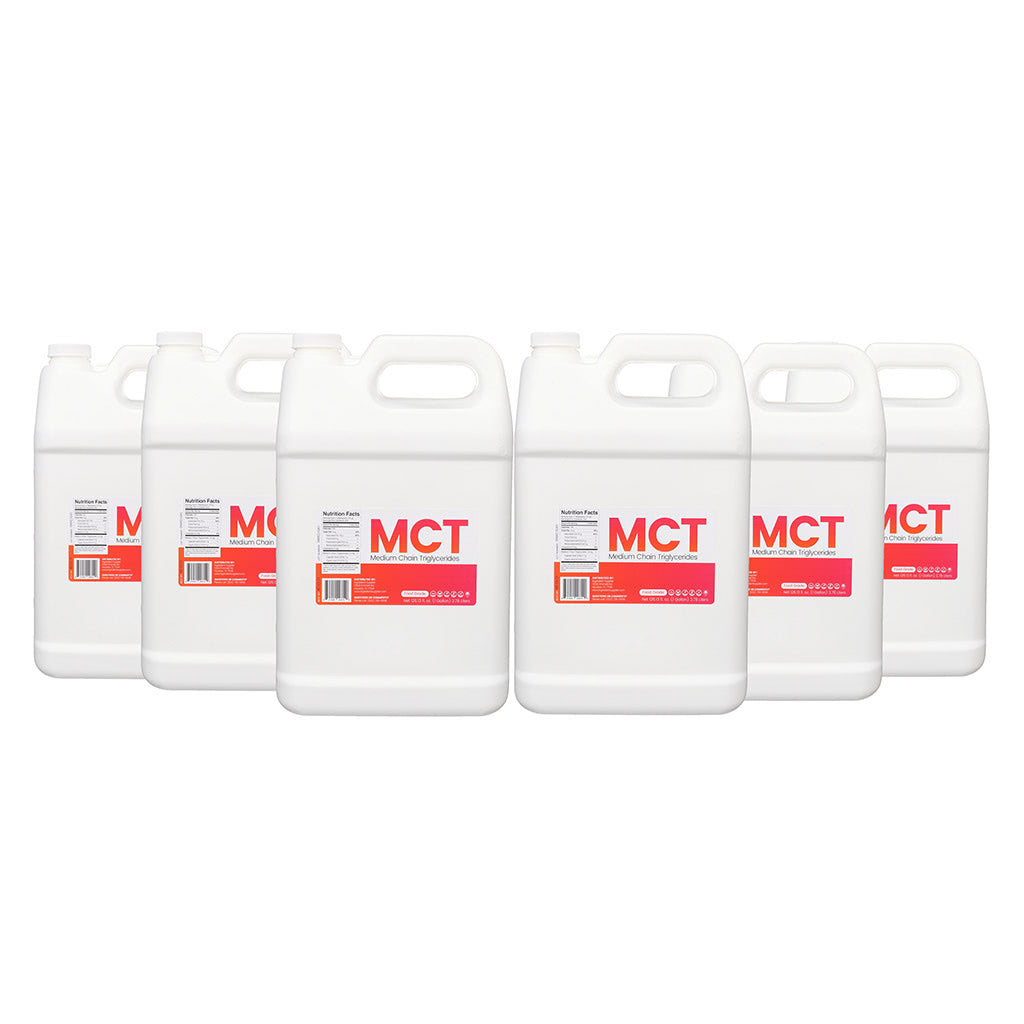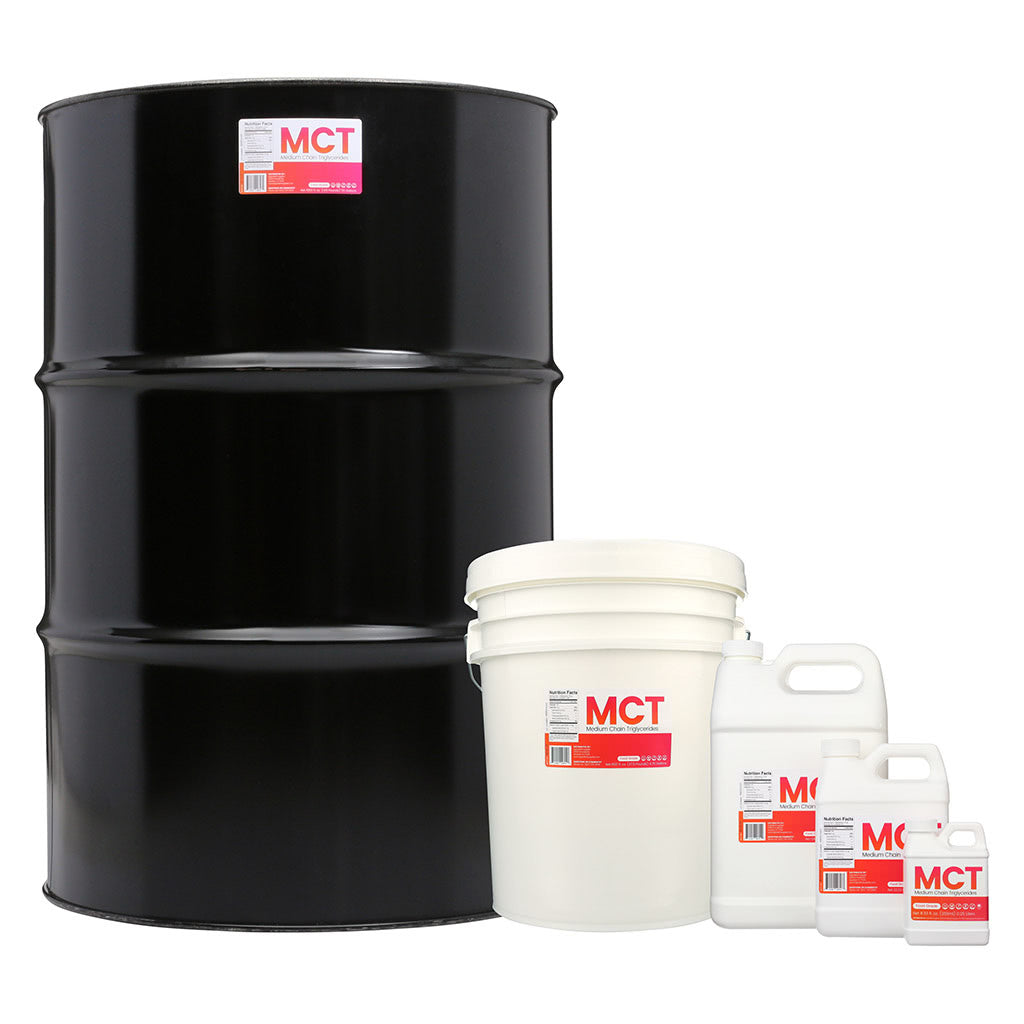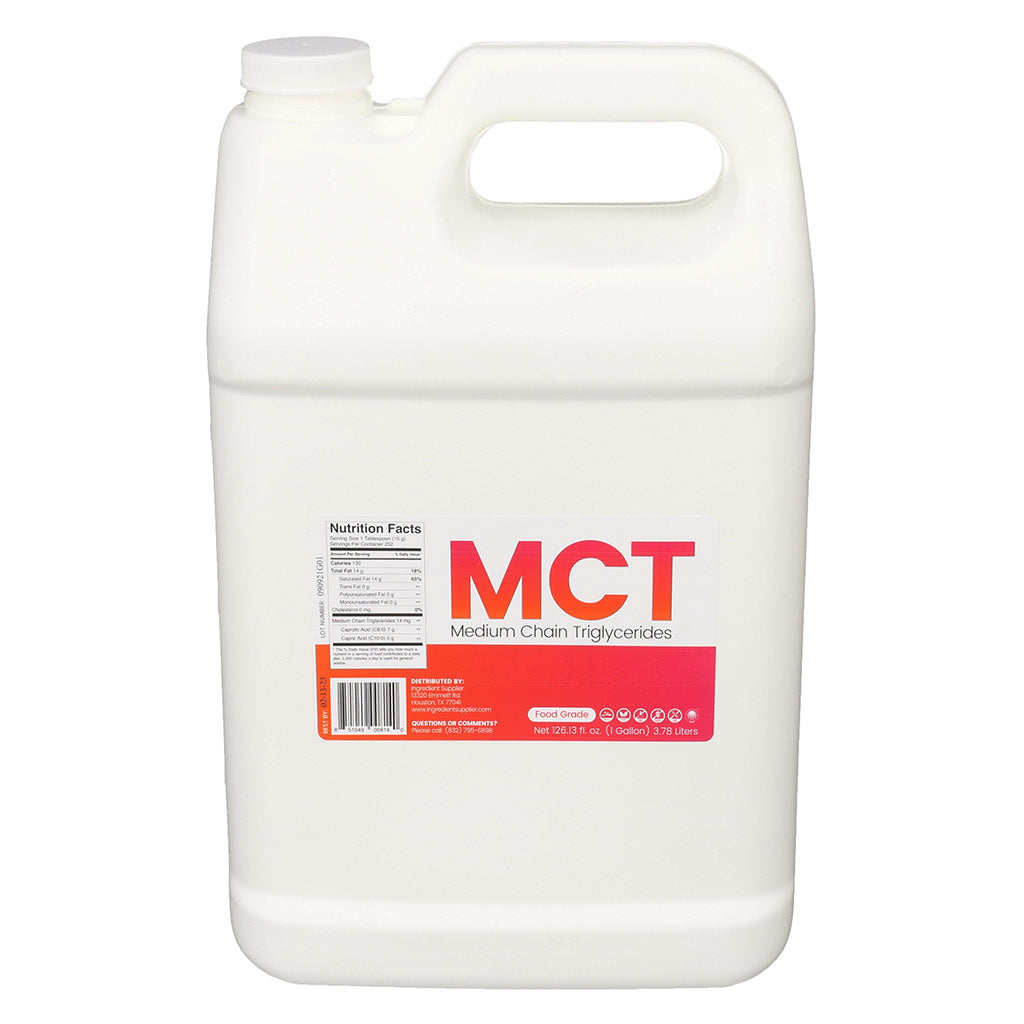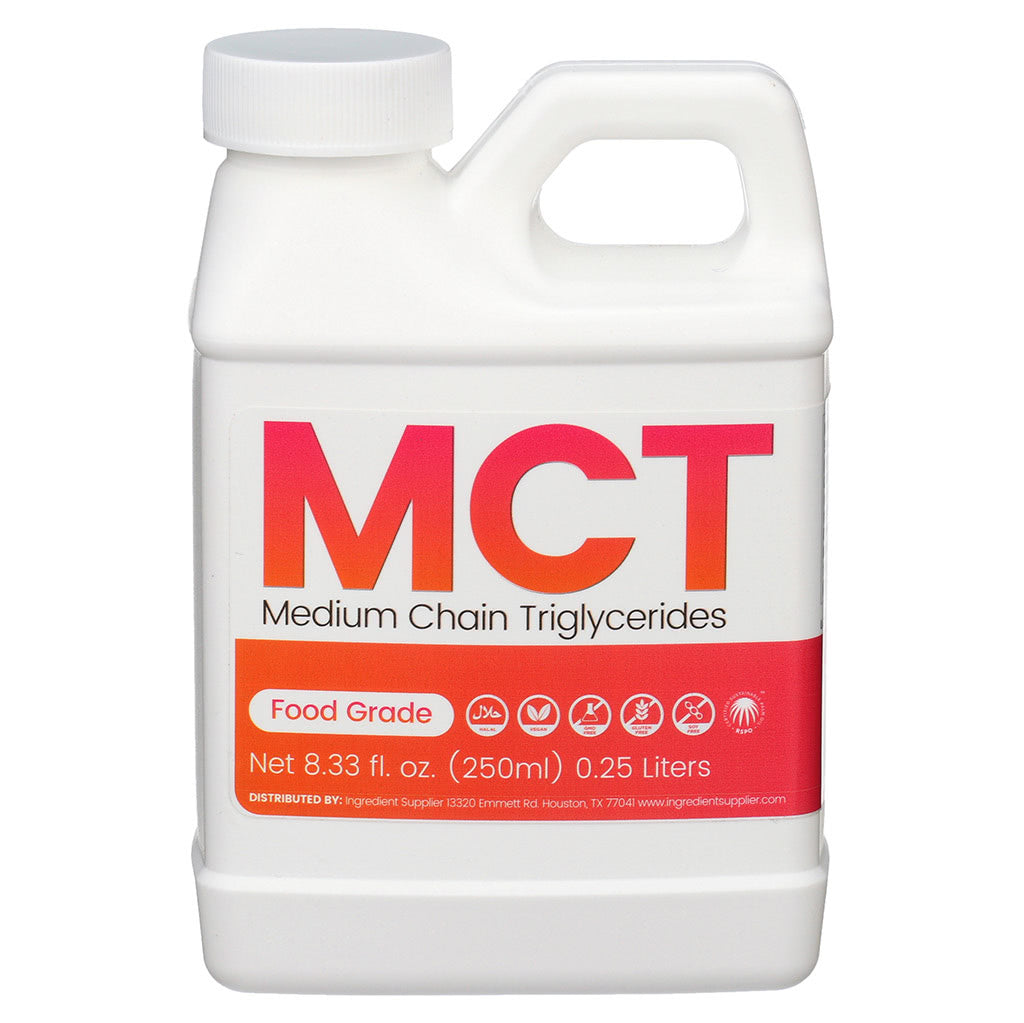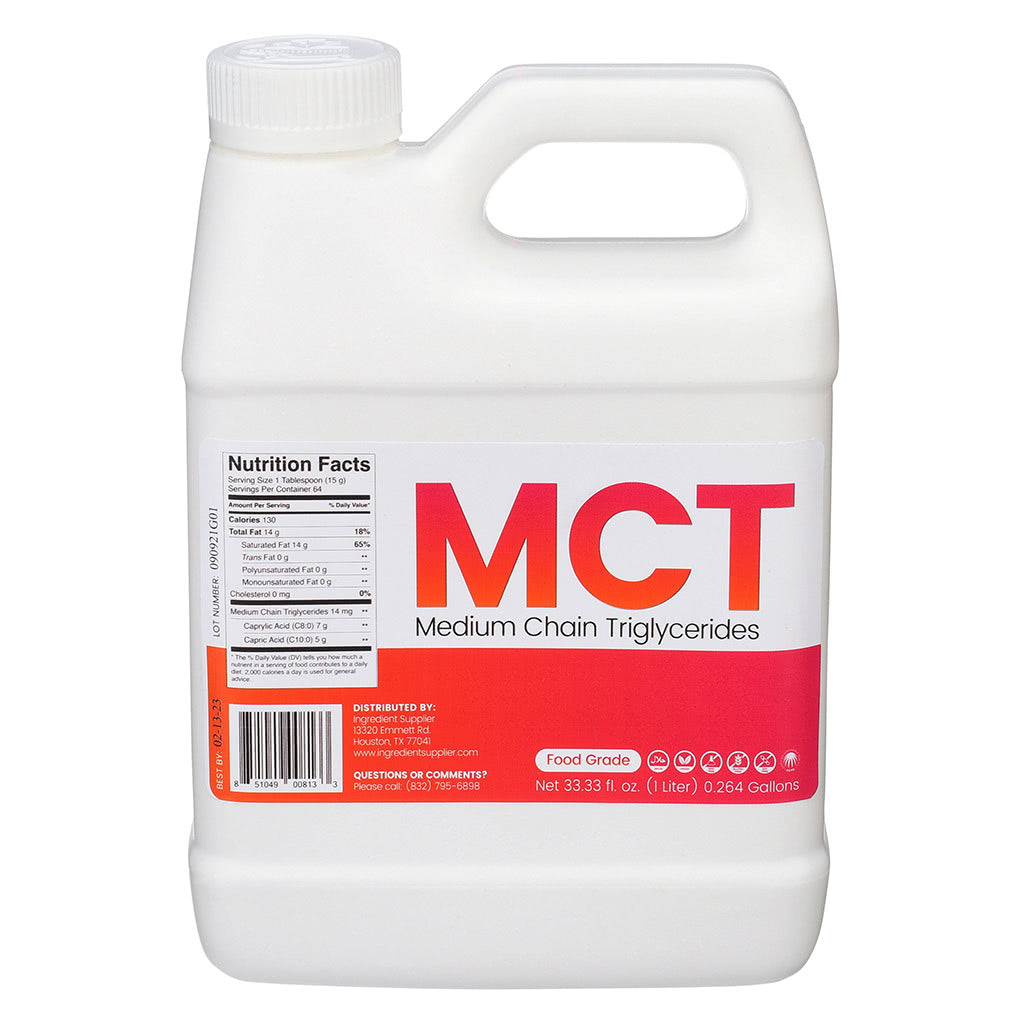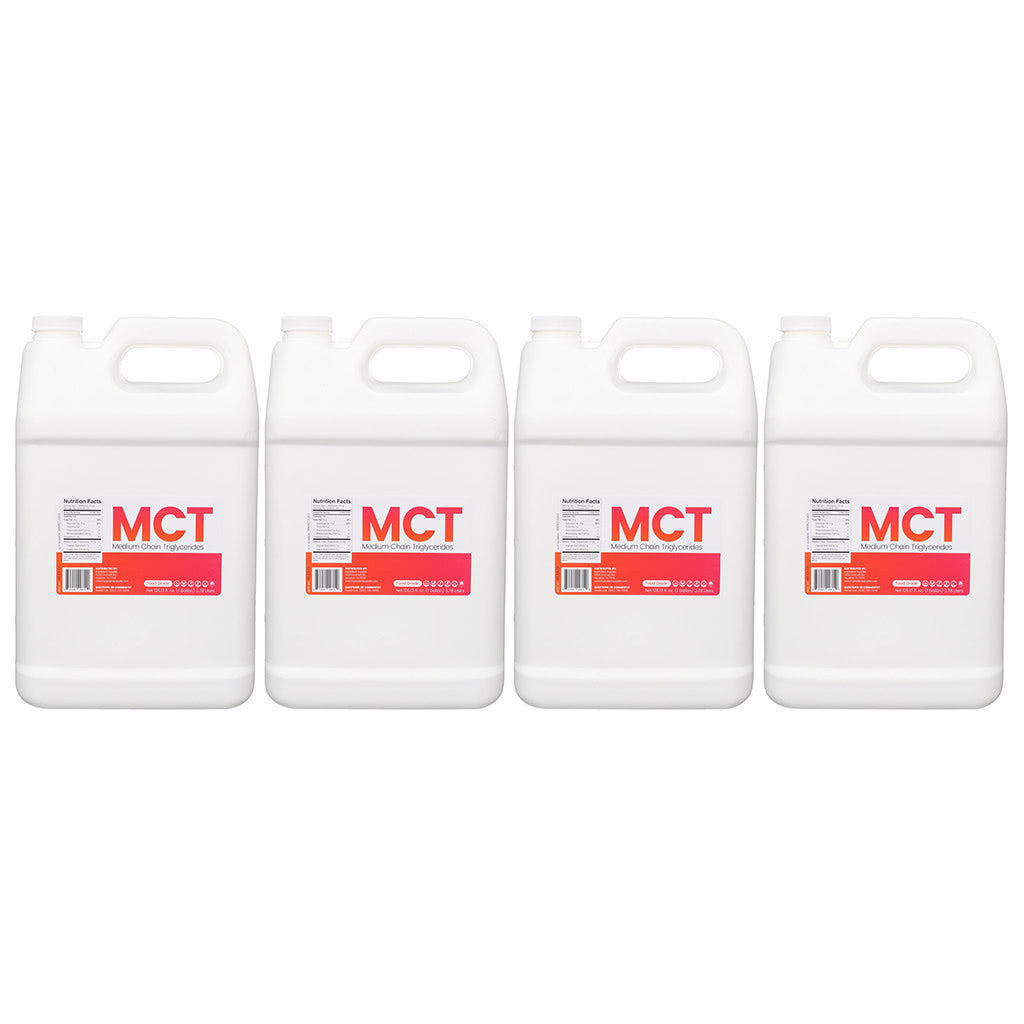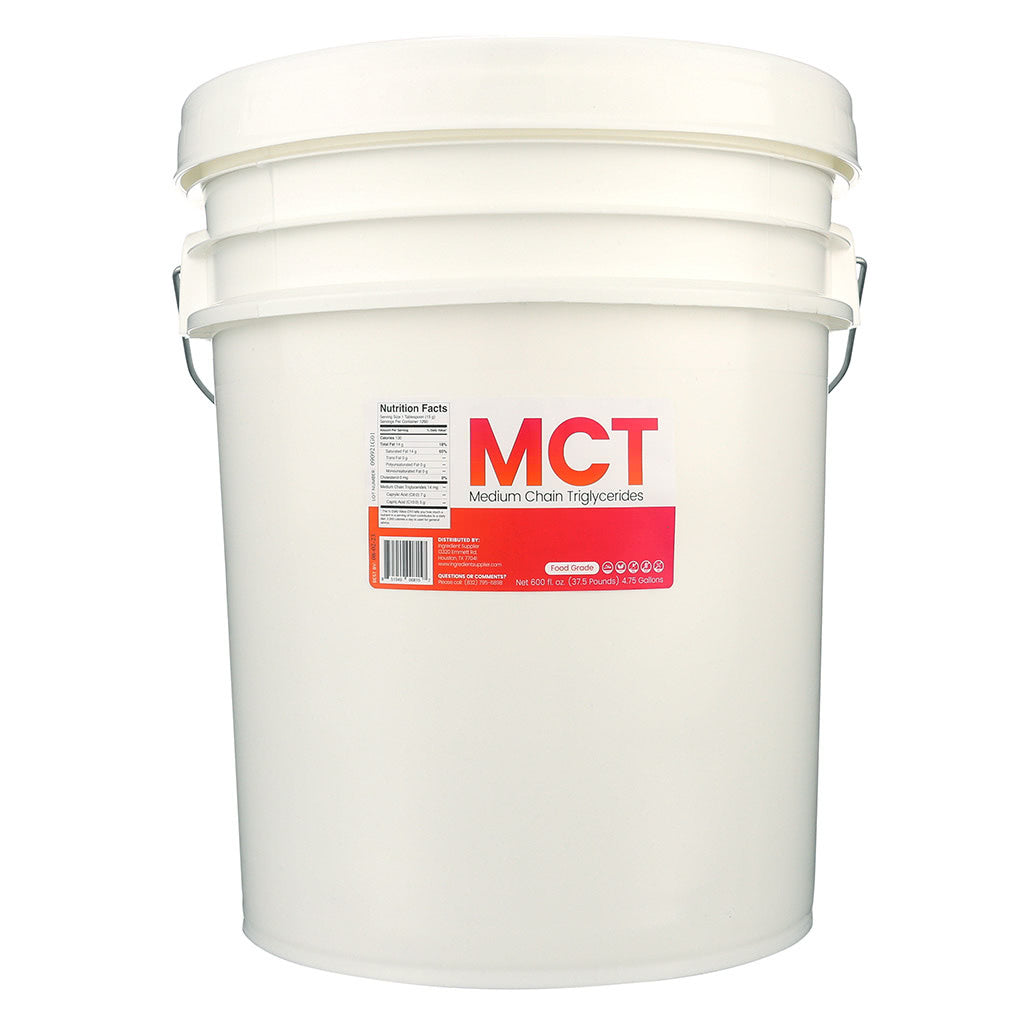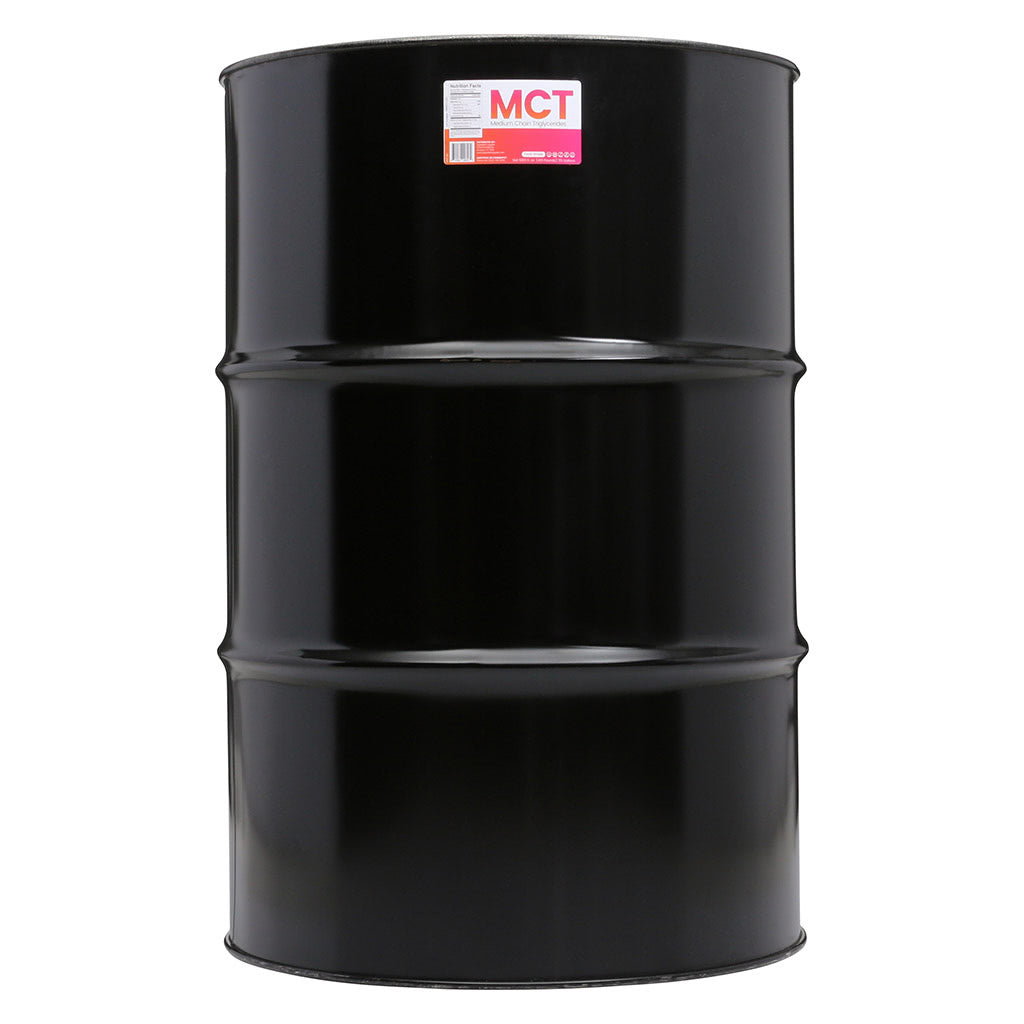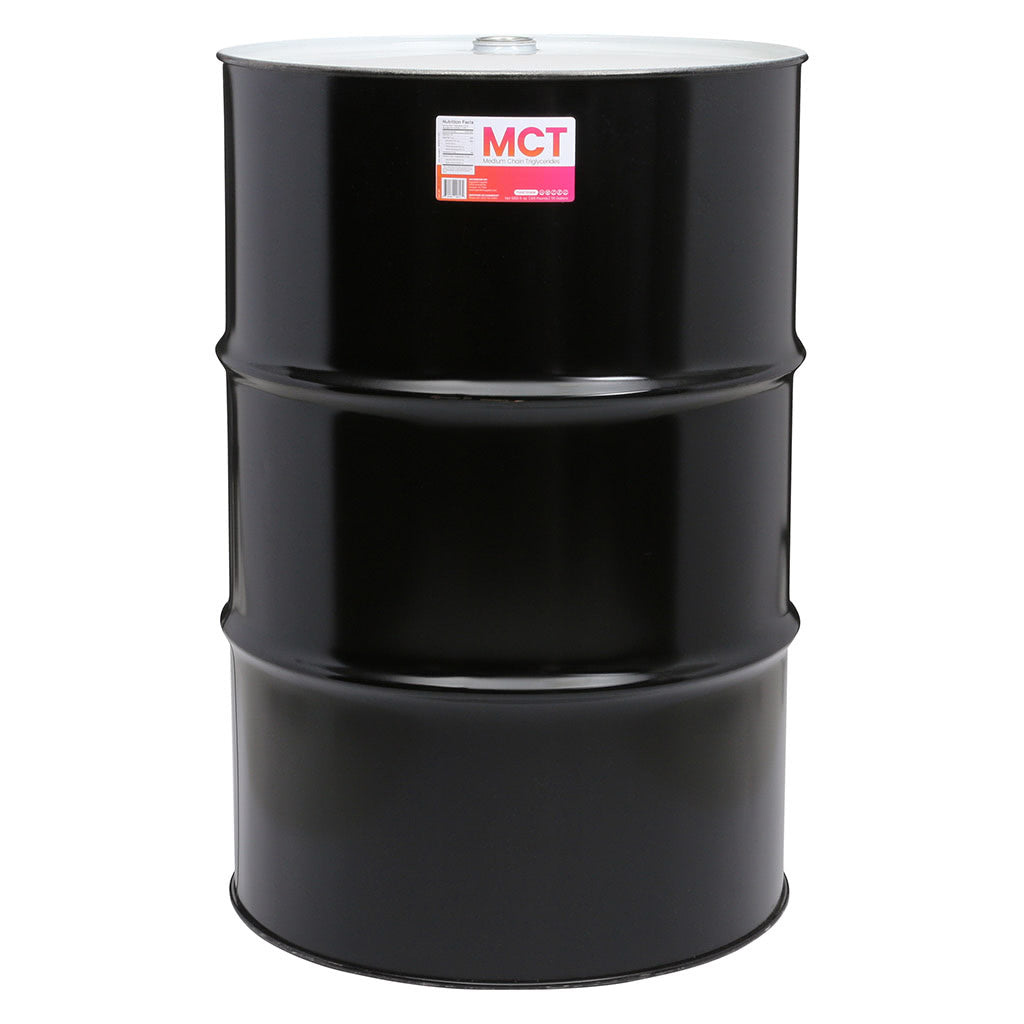Ingredient Supplier
Couldn't load pickup availability
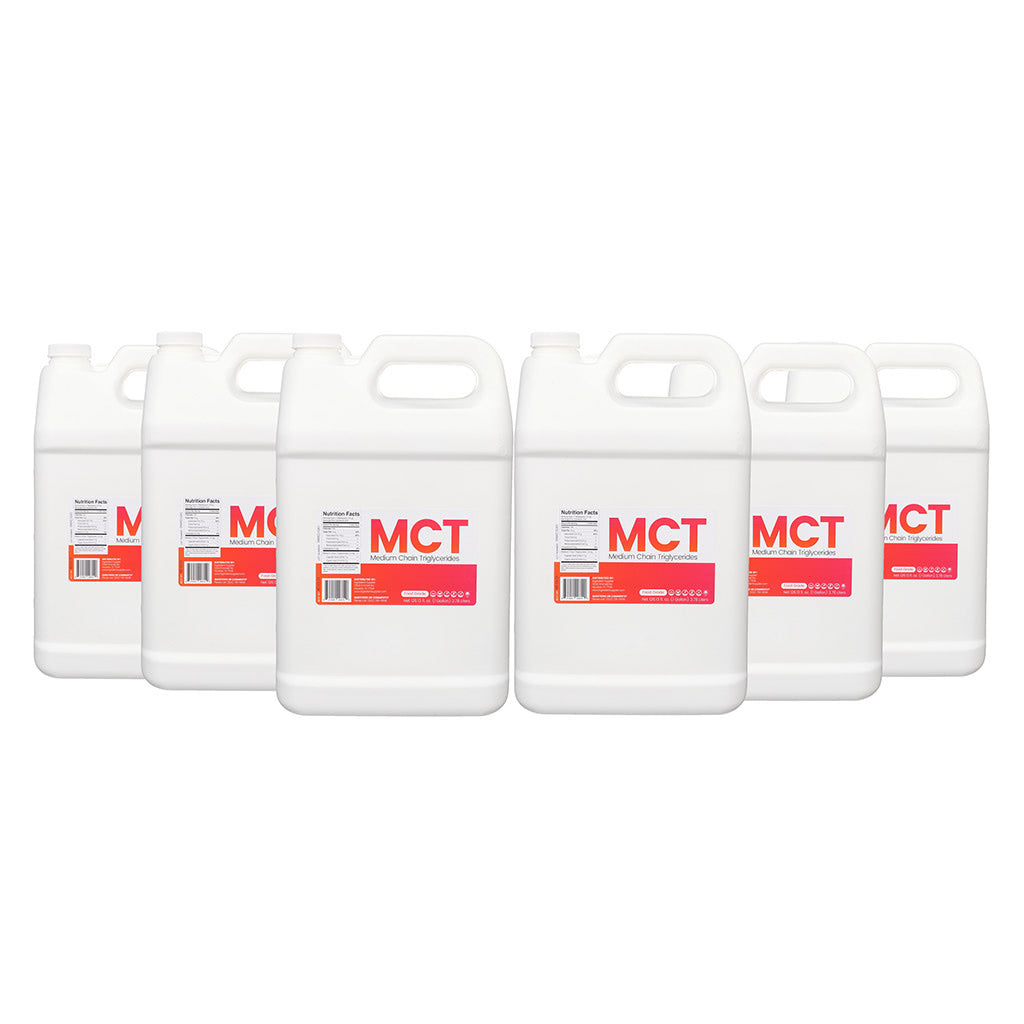
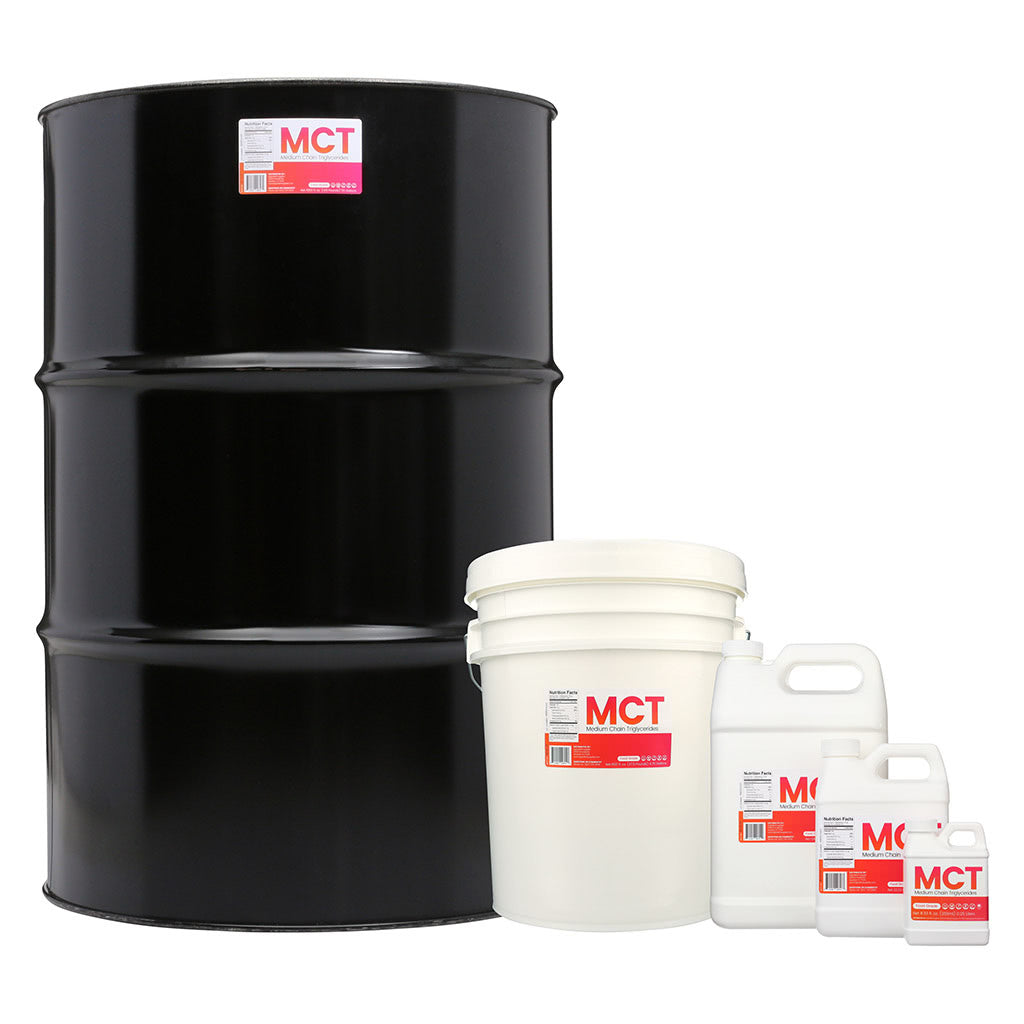
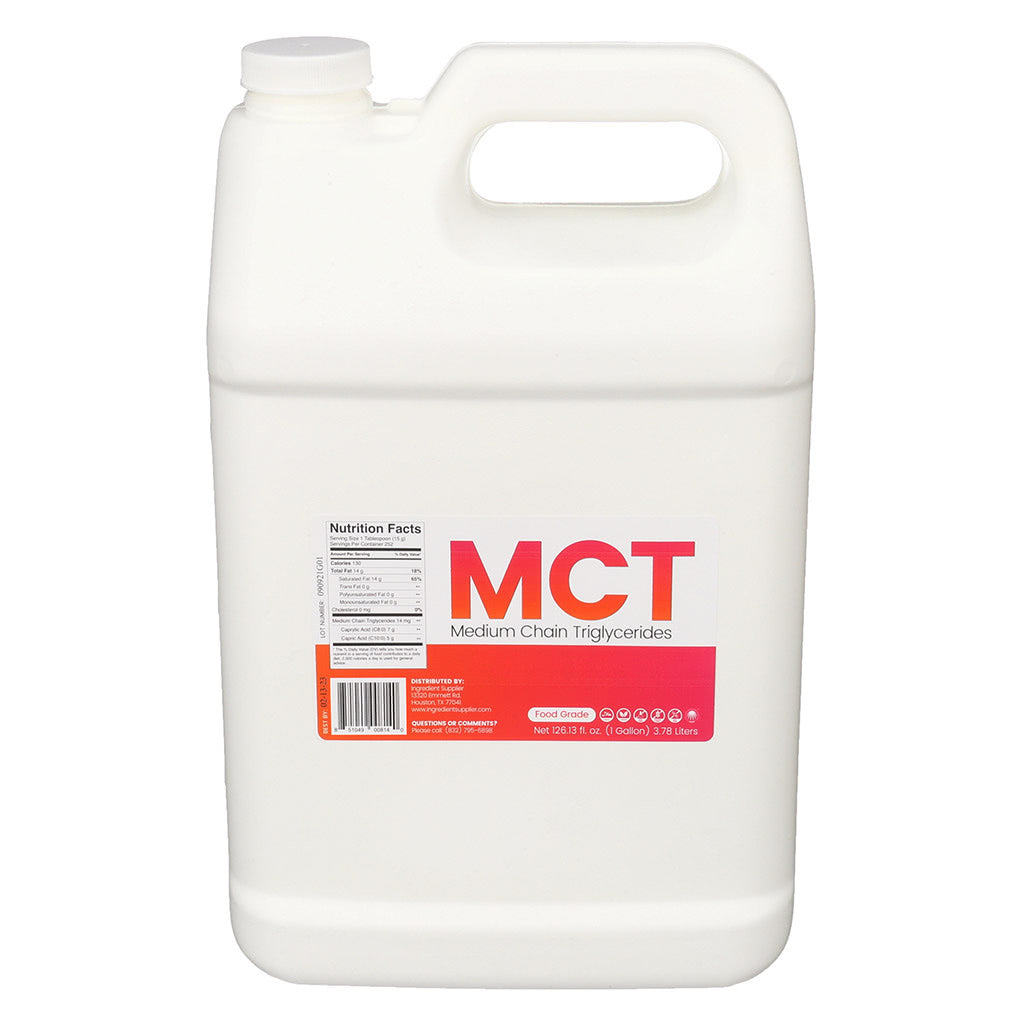
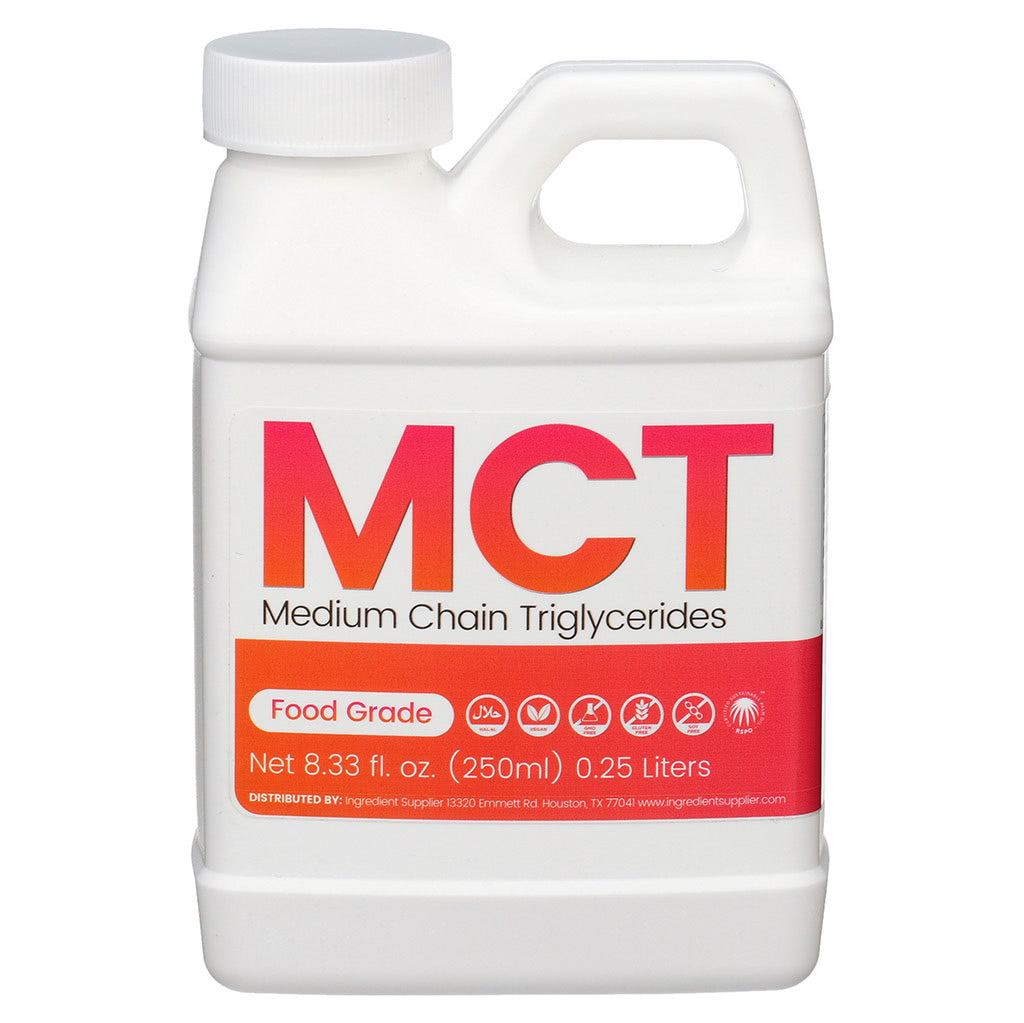
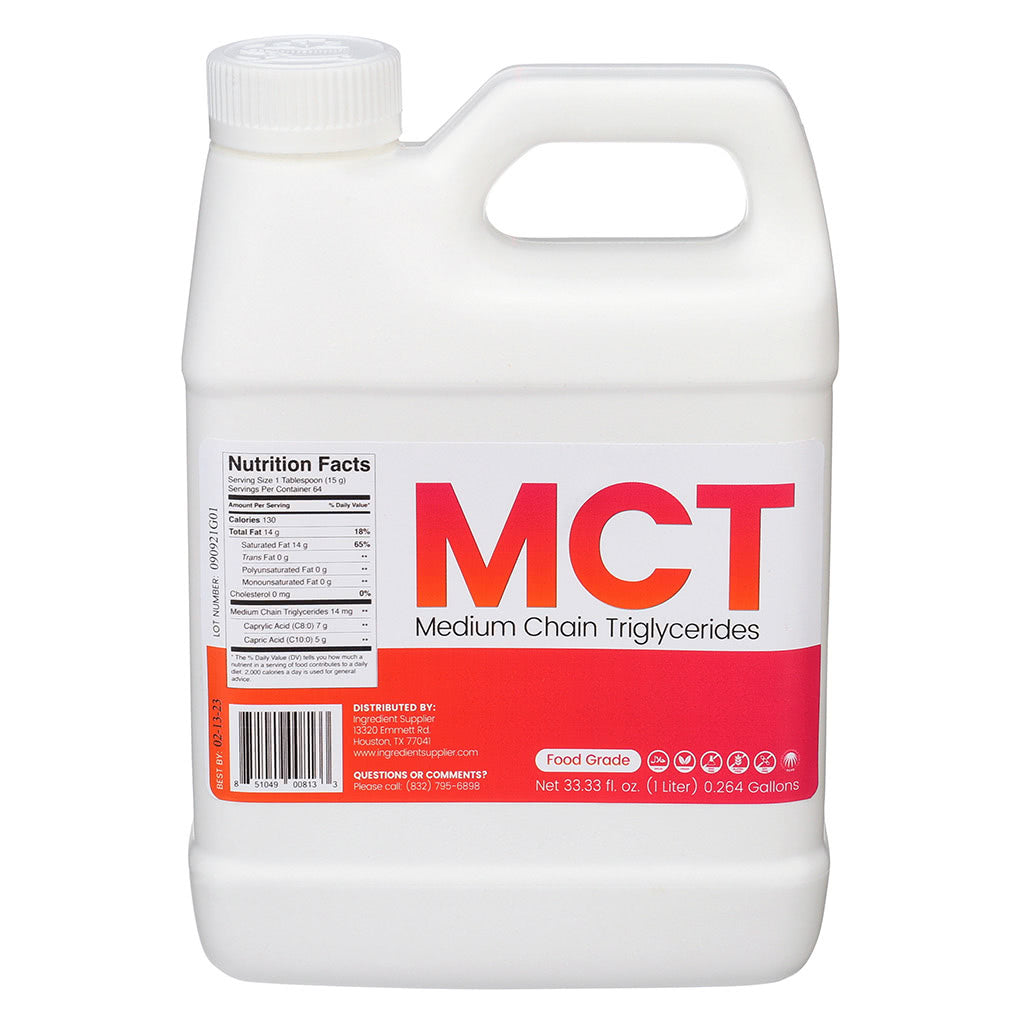
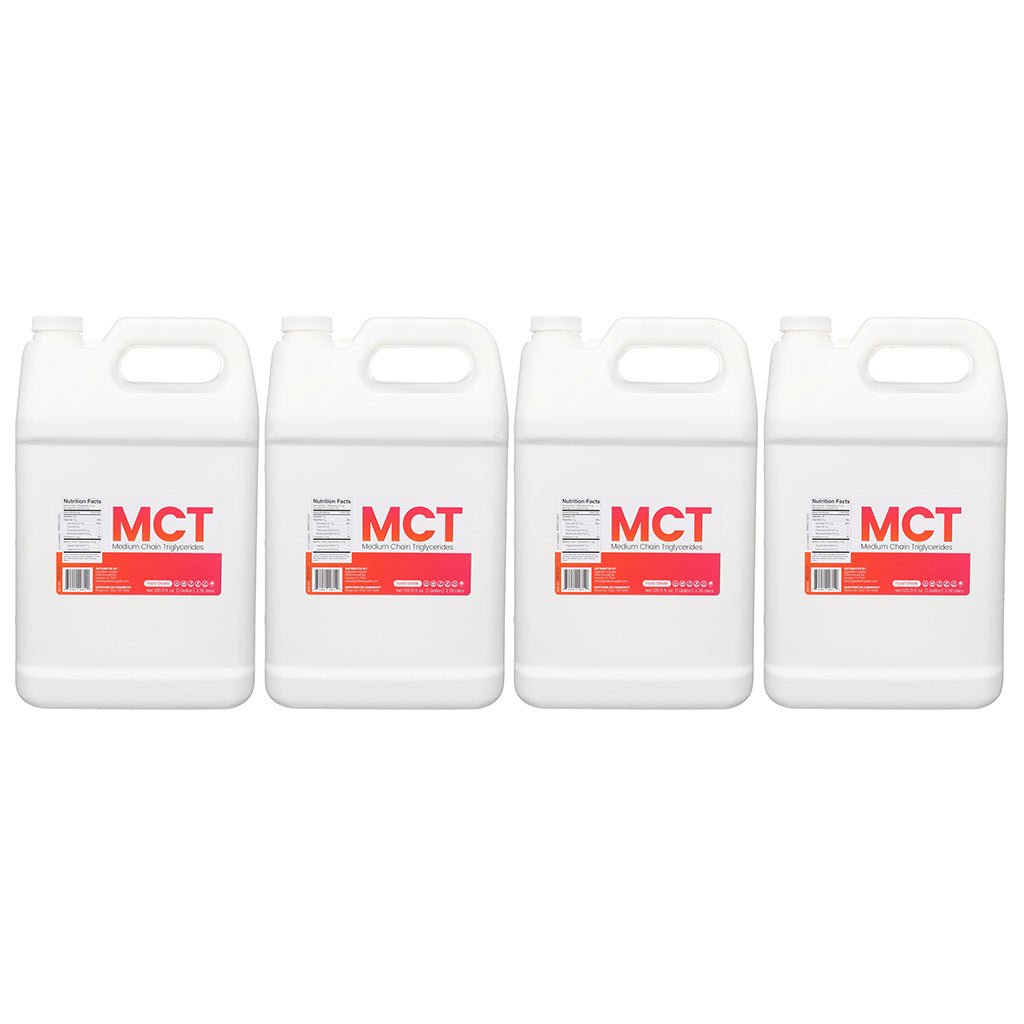
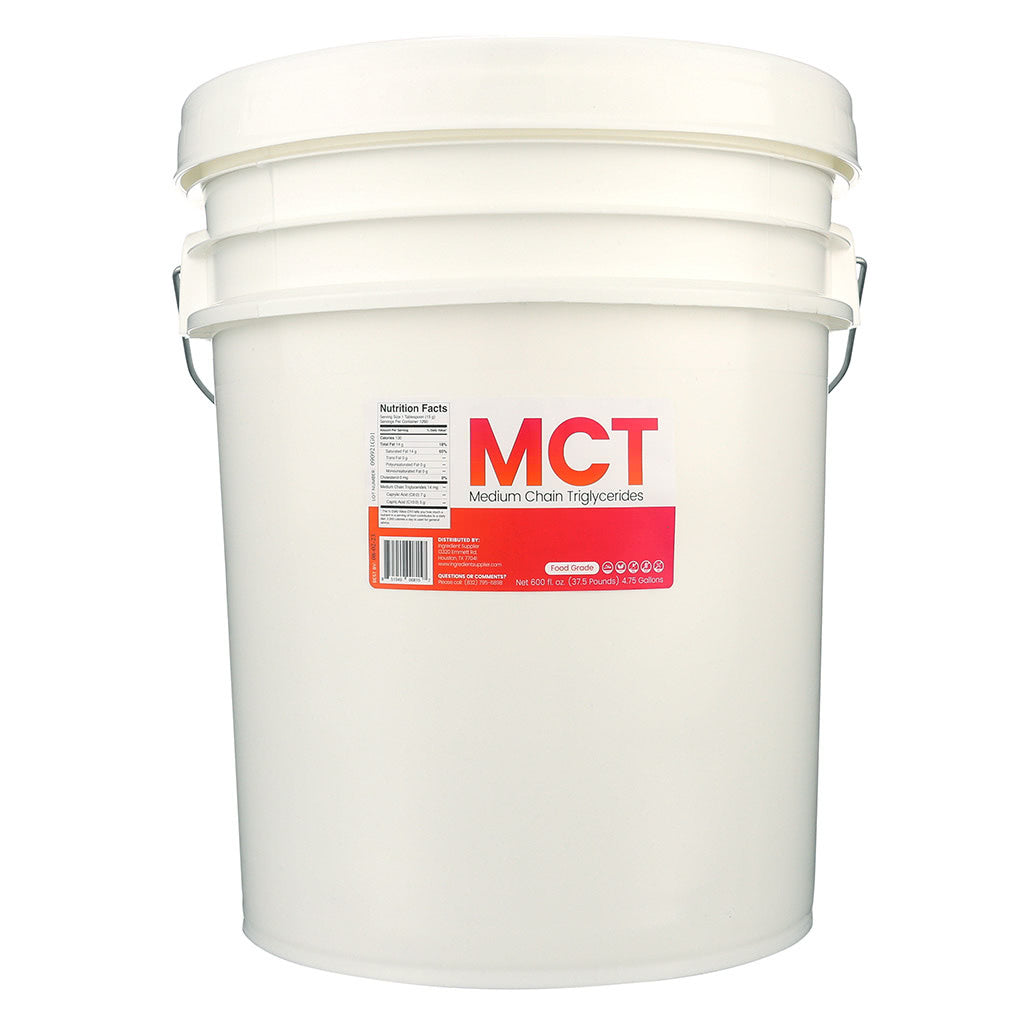
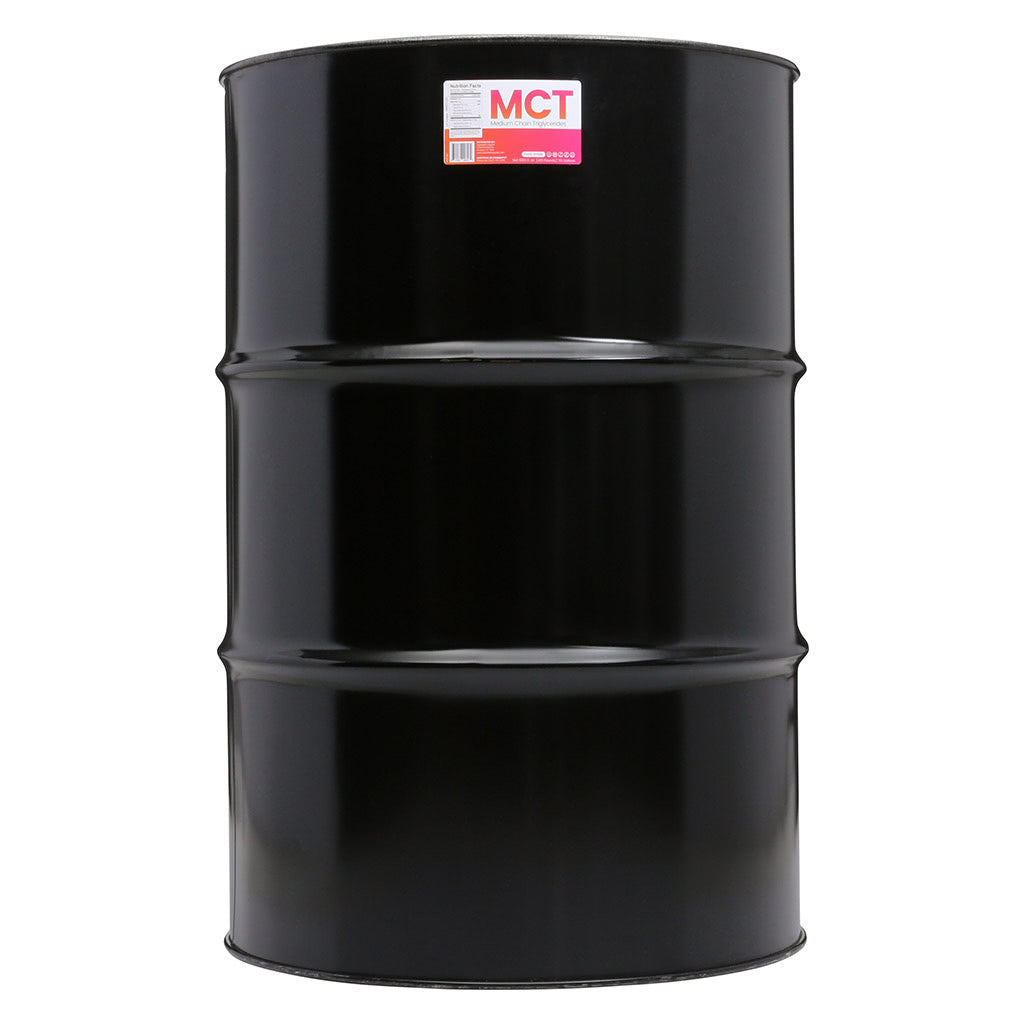
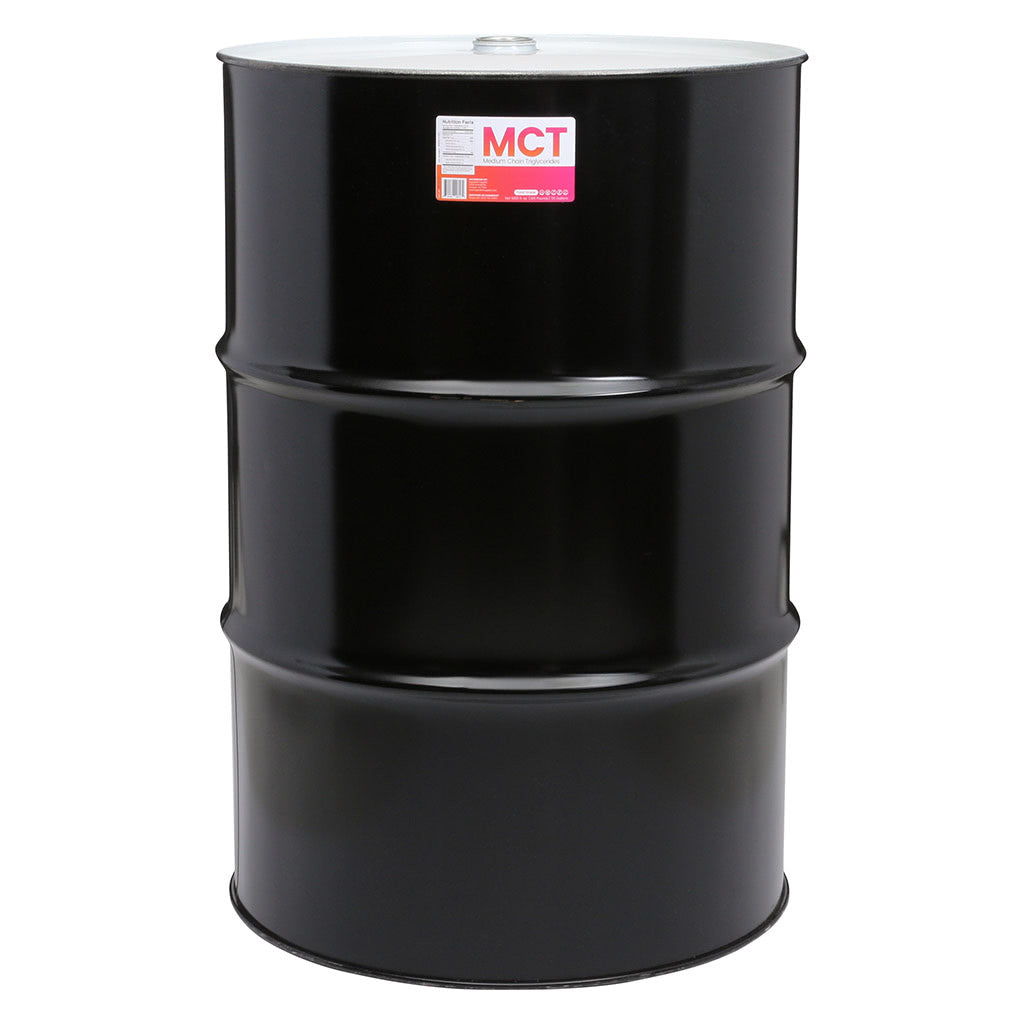
What is MCT Oil?
MCT stands for “medium-chain triglycerides,” or fatty acids. Triglycerides (fats) are made up of a glycerol molecule and three fatty acids, and are used by the body as energy or stored as fat.
Because of their structure, MCT’s are metabolized differently in the body. Most fats that are consumed are long-chain triglycerides (LCTs), which are harder to process, and have 10% more calories than MCTs. While most fatty acids require bile and pancreatic enzymes for digestion, MCT’s are transported directly to the liver, and do not require additional enzymes or bile to be digested. This makes this type of fatty acid more efficient for digestion.
MCTs are particularly useful for those who are on a ketogenic diet, as they can be used as an instant energy source or turned into ketones, providing the brain with an alternative energy source.
MCTs can be found in foods like coconut oil, palm kernel oil, and dairy products. While it is made from oils with strong smells, MCT Oil has almost no taste or smell, and thereby can be utilized in more ways than coconut oil (a natural carrier of MCTs).
How is MCT Oil Made?
MCT oil is a highly concentrated source of medium-chain triglycerides (MCT) made through a process called fractionation. This involves extracting and isolating the MCTs from coconut or palm kernel oil. There are four types of MCTs: caproic acid, caprylic acid, capric acid, and lauric acid. Capric and carylic are the most beneficial, and most MCT oils generally contain 100% caprylic acid, 100% capric acid, or a combination of the two, making it a much more efficient way to consume MCTs.
Benefits & Uses of MCT Oil?
MCT oil has been associated with a variety of health benefits and uses. Some of these uses include:
-
Health & Wellness
MCT oil has been associated with a variety of health benefits and uses. One of the more commonly touted benefits is with weight loss and appetite suppression. Because MCTs are processed differently than LCTs in the body, this can result in less fat storage and greater feelings of fullness, which can lead to consumption of less calories, and thereby weight loss.
MCT Oil is used by many on a ketogenic diet, as it is carb-free and high-fat, and can lower insulin and blood sugar levels. This may be helpful for folks with diabetes and keeping their blood sugar levels regulated. MCT Oil can also be useful for those engaging in intermittent fasting, as it will satiate hunger. A ketogenic diet has been shown to help children with drug-resistant epilepsy.
MCT Oil can help with adherence to that diet and help to reduce the frequency and severity of seizures. Additionally, for folks with gut issues, or struggles with malnourishment, MCT Oil can be a benefit if other types of fat cannot be digested. MCT Oil can potentially assist in the growth of good gut bacteria. It can also be an easy way to increase calorie consumption if someone has been unable to consume or digest other foods.
MCT Oil can also help with memory and improving brain function. Some believe that MCT can function as a nootropic or “smart drug,” and use it to aid in concentration and mental acuity. Additionally, there is some research that shows benefits of MCT Oil for cardiovascular health. MCT Oil can potentially lower the bad cholesterol and increase the good cholesterol, thereby reducing the risk of heart disease and metabolic syndrome.
For athletic performance, MCTs have been found to help reduce lactate build up and increase performance by making it easier to exercise, particular at higher-intensity levels. -
Medical
MCT Oil has been found to reduce growth of fungal infections, even reducing the spread of infection within hospitals. -
Food & Cooking
MCT Oil has a low smoke point, so it is best to use it outside of settings with high heat. Many people use it in smoothies, coffee, salad dressings, and other non-cooked foods. In baked goods, MCT Oil can be substituted for other types of oils and fats. -
Cosmetic
Like most oils, MCT Oil has benefits for skin and can be used as a carrier oil in various moisturizers, balms, creams, conditioners, and scrubs. MCT Oil is also a great alternative or addition to coconut oil in a hair treatment plan. Some of the benefits to using MCT Oil on your hair is that it strengthens hair by preventing protein loss, works as a scalp antifungal, feels lightweight because it absorbs into the hair instead of sitting on it, and adds shine. It can be added to your conditioner or applied directly to the scalp and hair.
Dosage, Safety & Side Effects
MCT oil appears to be safe for most people, and there are currently no reported adverse interactions with medications or other serious side effects.
While there are no clear dosage guidelines, consuming 4+ tablespoons a day, or increasing dosage too rapidly, may result in some gastrointestinal distress. Most doctors and experts recommend starting with 1 teaspoon and increasing slowly to 1 tablespoon per day. Most commonly people consume MCT Oil through bulletproof/keto coffee, keto fat bombs, or mixing the MCT Oil into a smoothie or protein shake.
MCT Oil is not recommended for those who have liver damage or liver disease. Pregnant and nursing women should not take MCT Oil.

